It seems that Greek women are facing cosmetic surgeries, according to research.
A recent Focusbari study among 1,209 people (581 men and 628 women) over the age of 18, proves that in Greece aesthetic surgery is approached in a more restrained way.
However, most women of all ages (6 out of 10) agree that the sense of beauty strengthens self -esteem.
More specifically, the elements of the study show the following:
50% of Greek women are open to aesthetic dermatological interventions.
64% say they do not intend to have any aesthetic plastic surgery.
24% have not undergone surgery but leaves open the possibility of doing so in the future.
12% have already undergone or intend to proceed with some aesthetic intervention.
The above evidence demonstrates a more hesitant Greek women’s attitude towards plastic surgery than other countries, where the culture of cosmetic interventions is more widespread and socially acceptable.
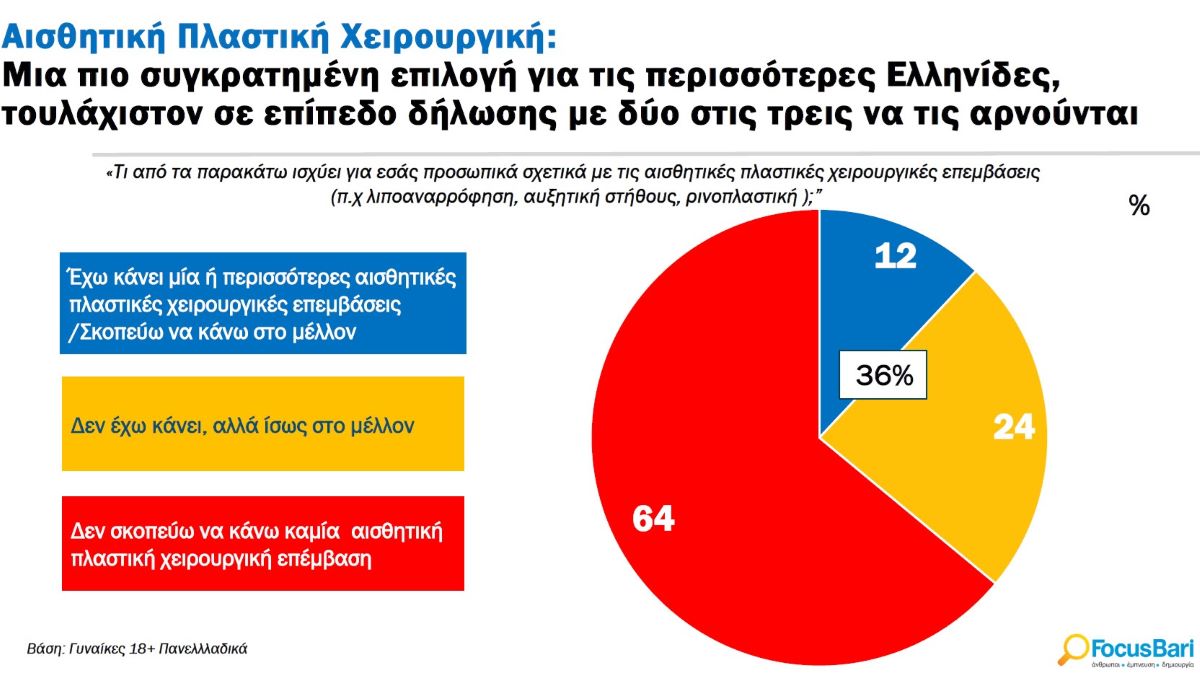
The need of beauty by age
Sub -area research examines the following issues: the perceptions and attitudes of beauty, beauty routine and the needs and habits of individuals, attitudes to aesthetic interventions.
According to the results, the sense of beauty strengthens self -esteem, but the views on the influence of trends on beauty are divided.
Younger ages (18-24) are more open to extreme appearances (55%), while older (45+) emphasize naturalness and anti-aging (72%).
In particular, the dominant trend in women over 25 years old has shifted from intense aesthetic interventions to a more natural approach, that is, the least makeup, the most emphasis on skin care and authenticity are now a key priorities at these ages.
On the contrary, women aged 18-24 continue to choose more bold and unconventional appearances, while skin care has become a necessary habit for 80% of Greek women.
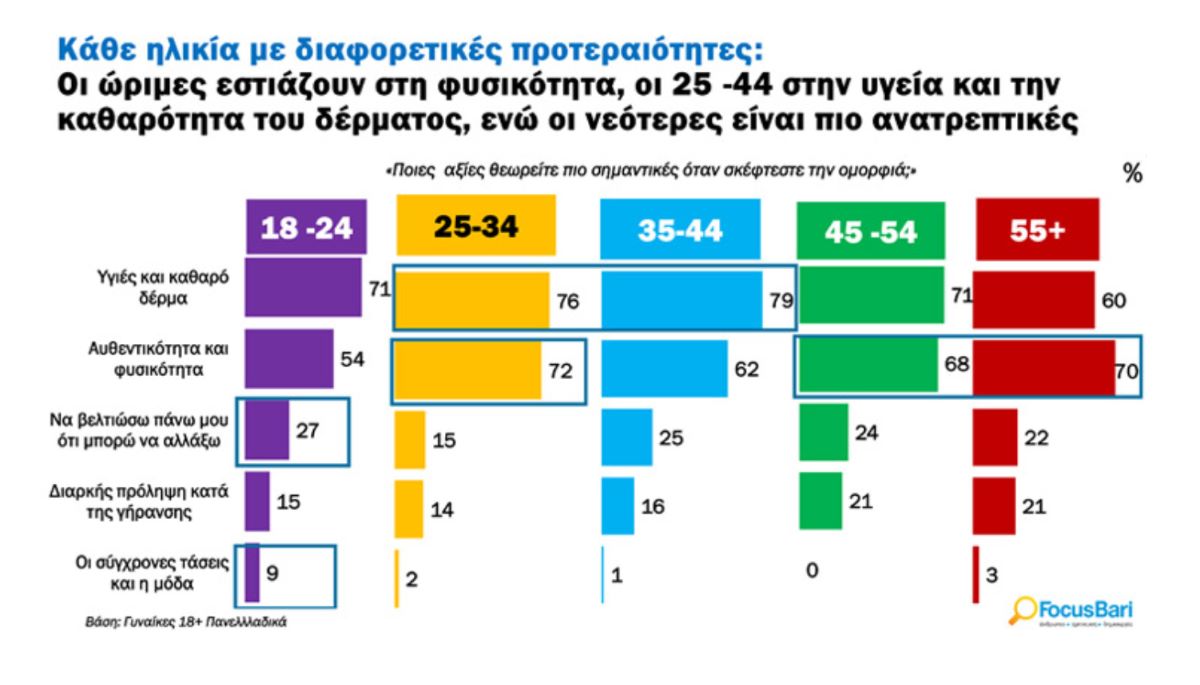

Finally, the male self -care gradually gains ground, as, as the research points out, “beauty and care are no longer exclusively female affair.”
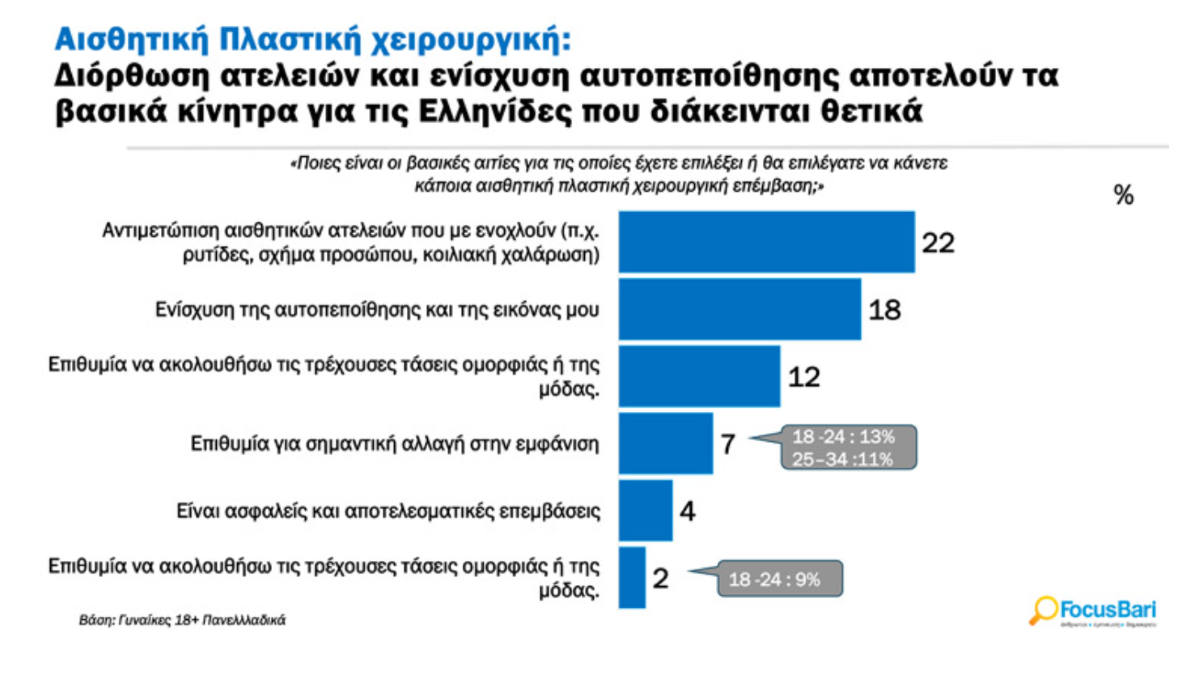

Why older ages are more cautious
The skeptical attitude of the Greek women can be attributed to various factors, such as:
Social and cultural stereotypes: Although exterior plays an important role in modern society, there are still reservations about the authenticity of beauty and interventions in it.
Economic Reasons: The cost of a plastic surgery remains high, so it is not accessible to all women. 67% consider financial costs as the main suspension factor.
Fear of the result: Fear of failed cosmetic interventions and non -physical results is deterrent to many women (59%).
Alternatives: Non -invasive aesthetic treatments (eg botox, fillers) offer improvements with lower risk and lower costs, making it a more attractive choice for many women (48%).
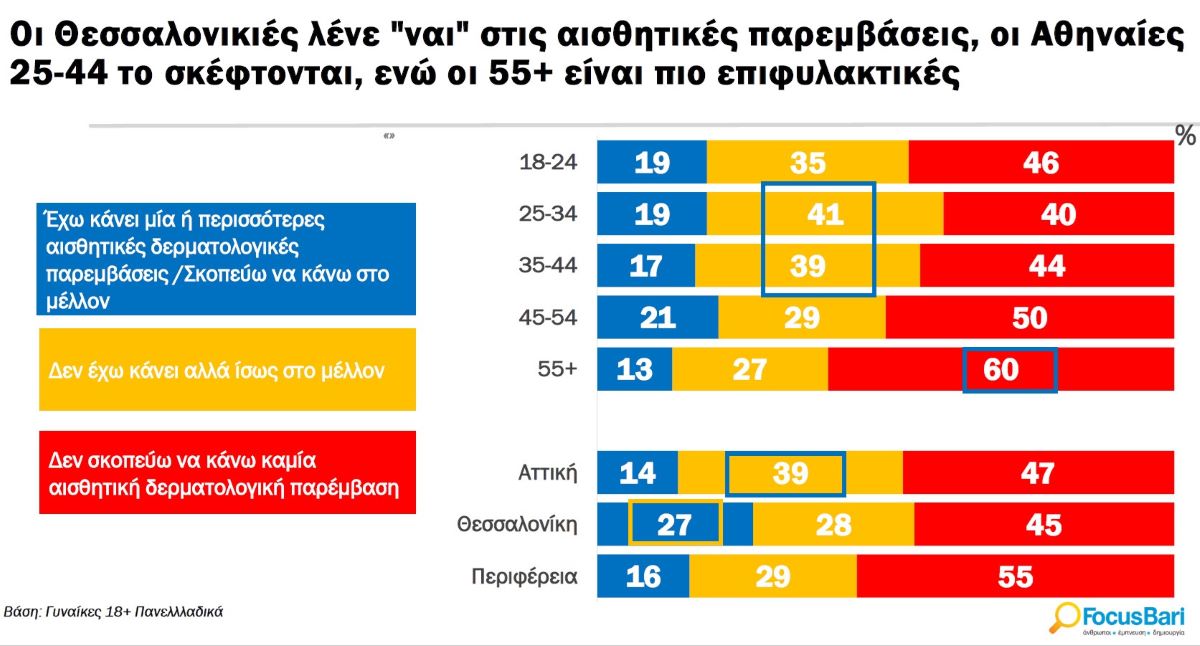

Beauty Routine: What do Greek women choose
Two in three Greek women (66%) associate beauty with health, naturalness and authenticity.
Older people focus on anti -aging (74%), ages 25 to 34 years in hydration (58%), while the youngest in the fight against local problems (63%).
The daily use of skin care products is “must” for 4 in 5 Greek women (80%), but also for 1 in 3 men (33%).
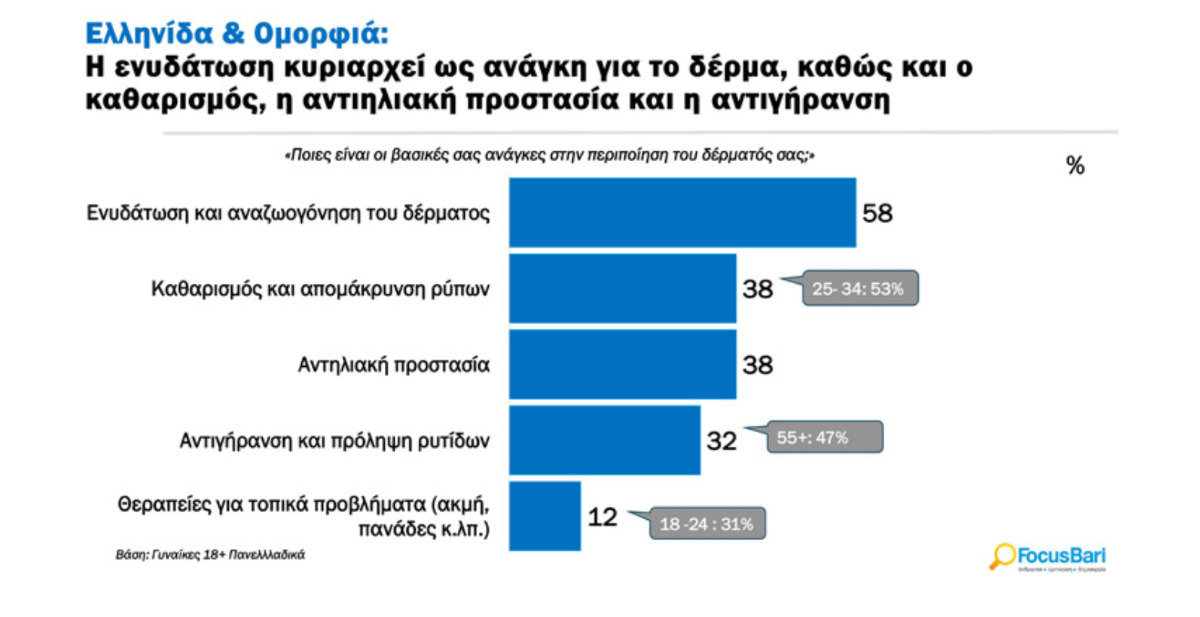

What is expected in the future
Trends in cosmetic interventions are constantly changing. Increasing non -invasive therapies and the gradual acceptance of aesthetic interventions by the younger generation may lead to greater familiarity with plastic surgery in the future.
Already, 29% of women 25-34 years have tried botox or fillers, while 37% say they will consider it in the future.
Source: iatropedia.gr
